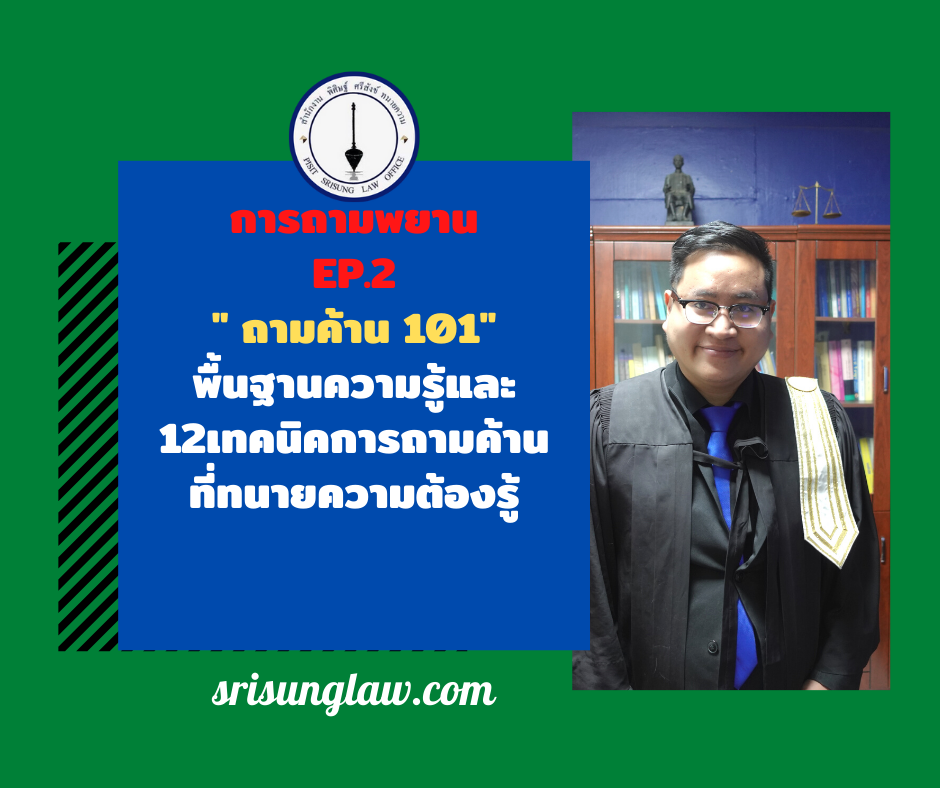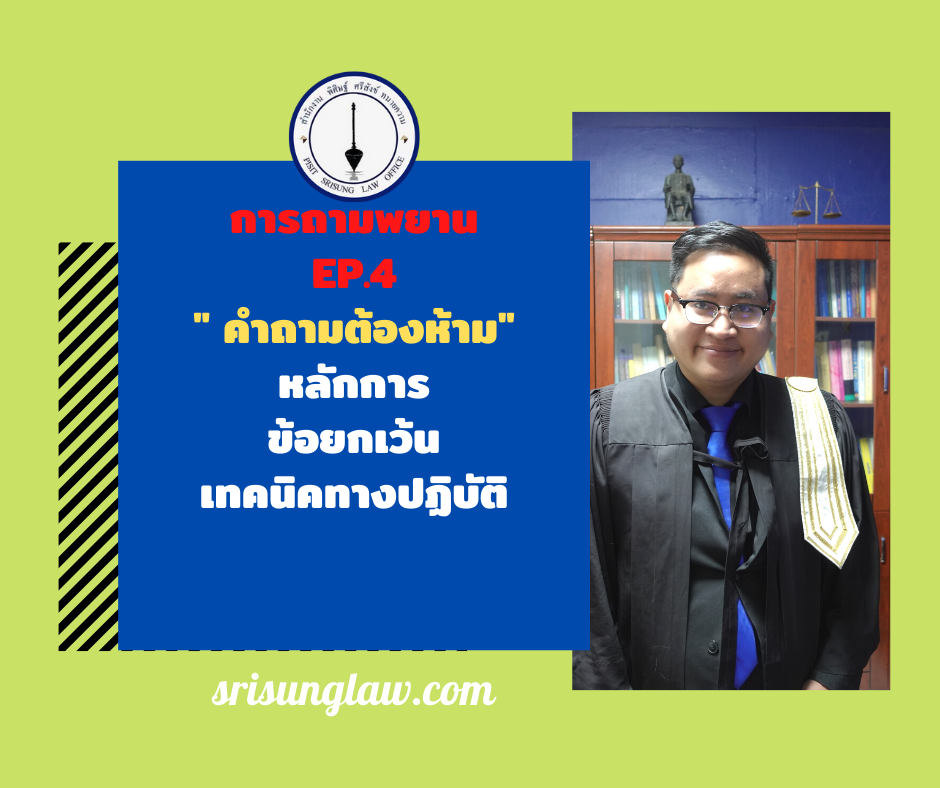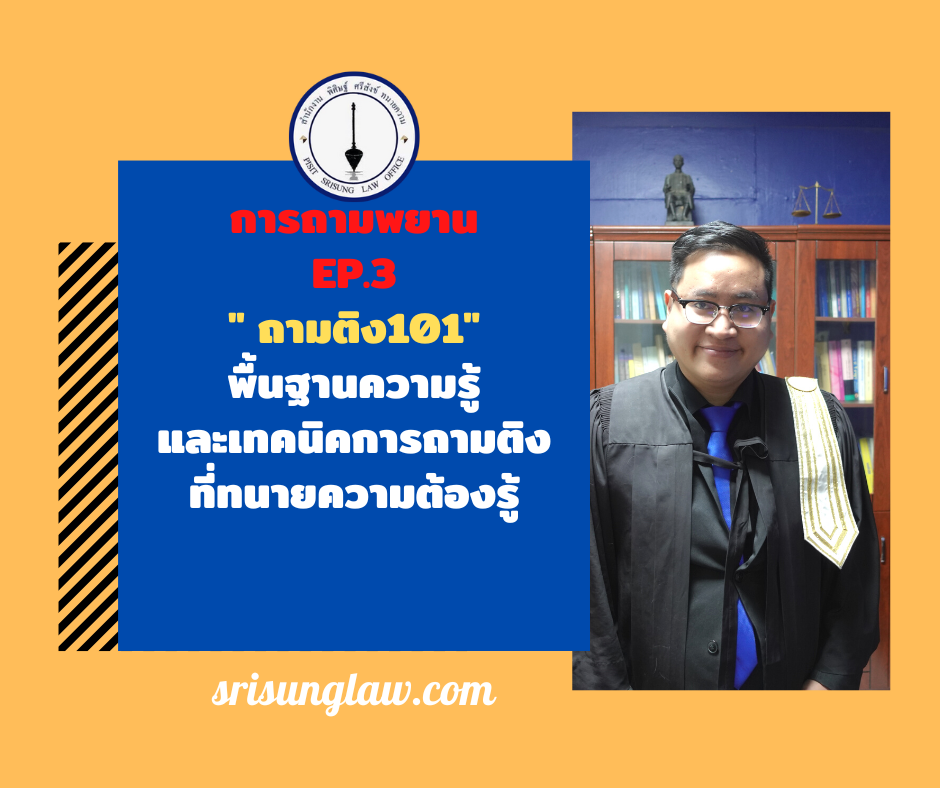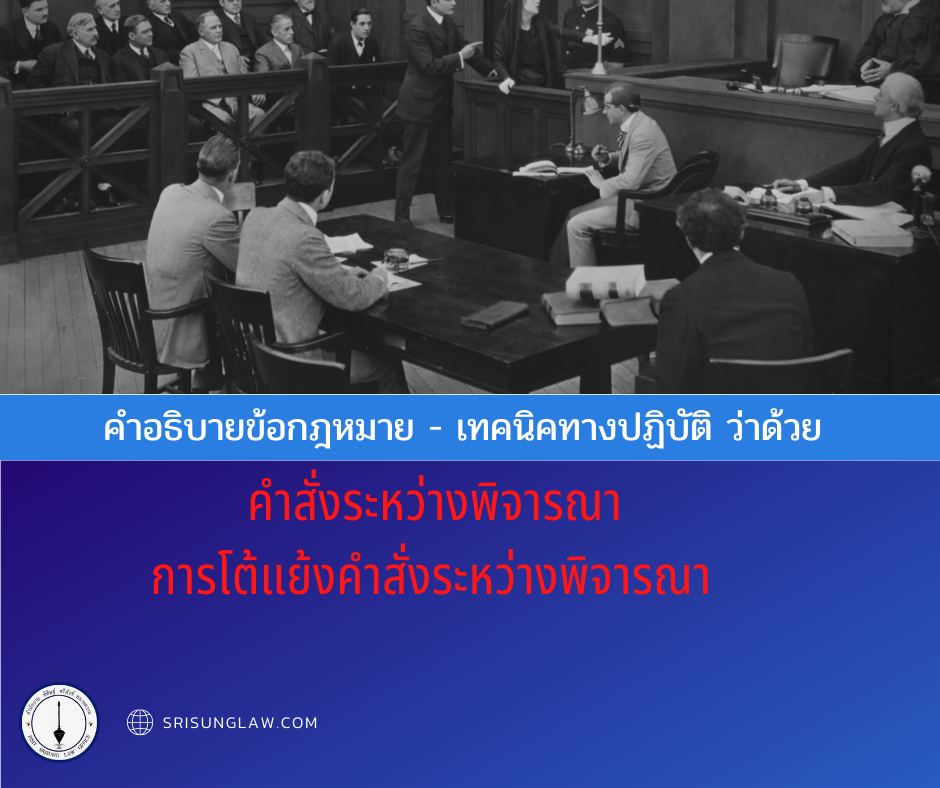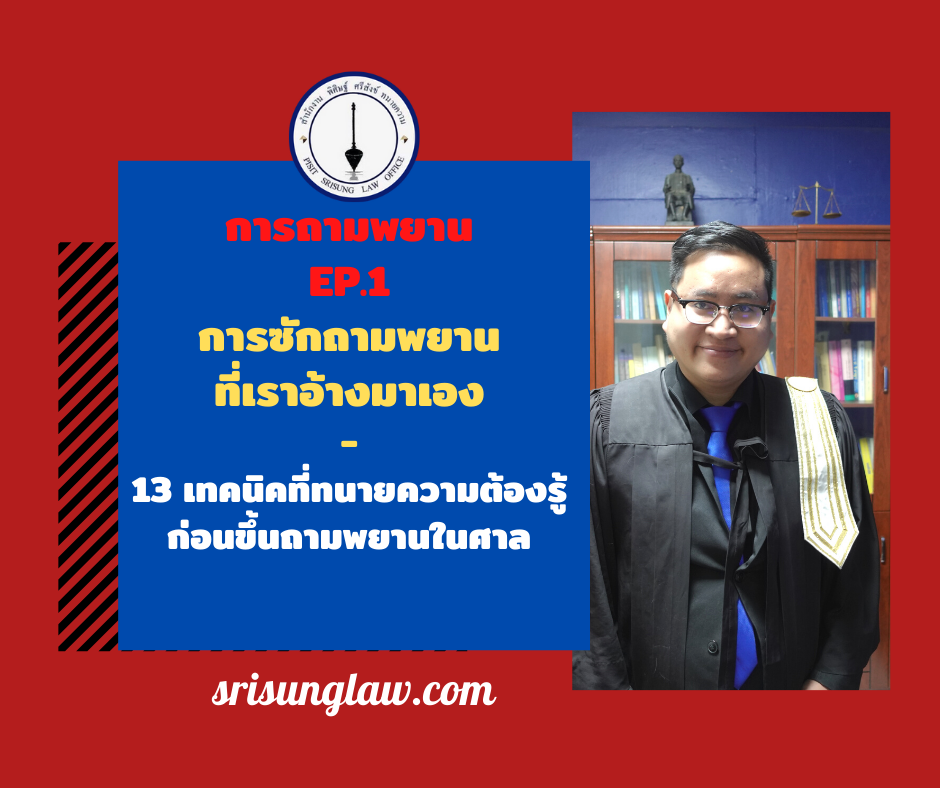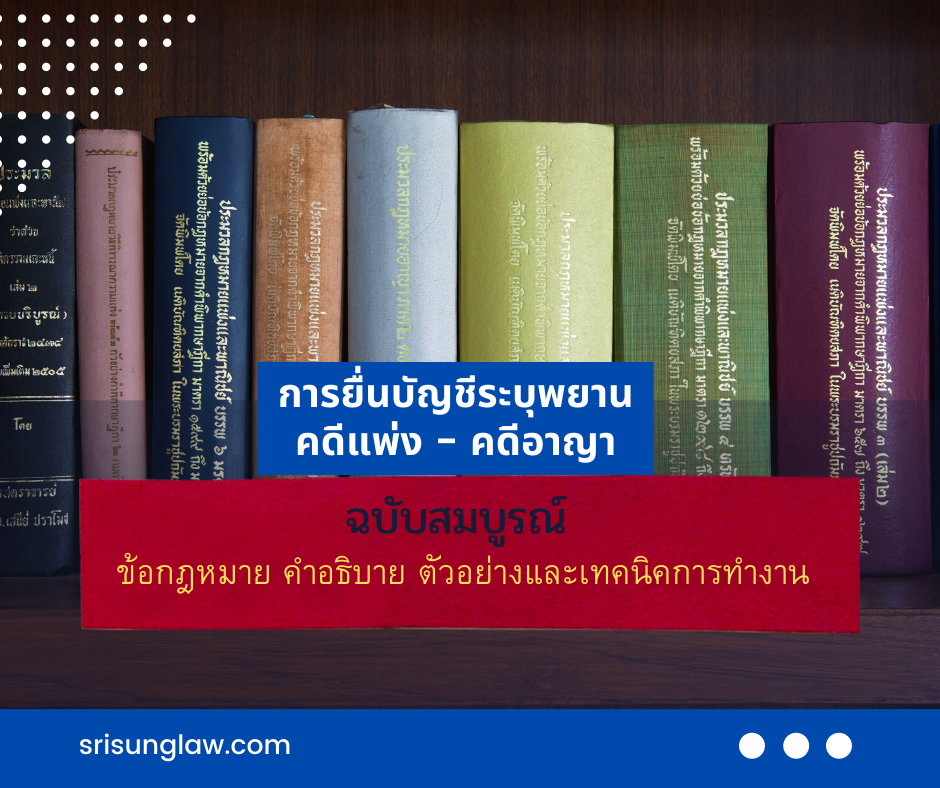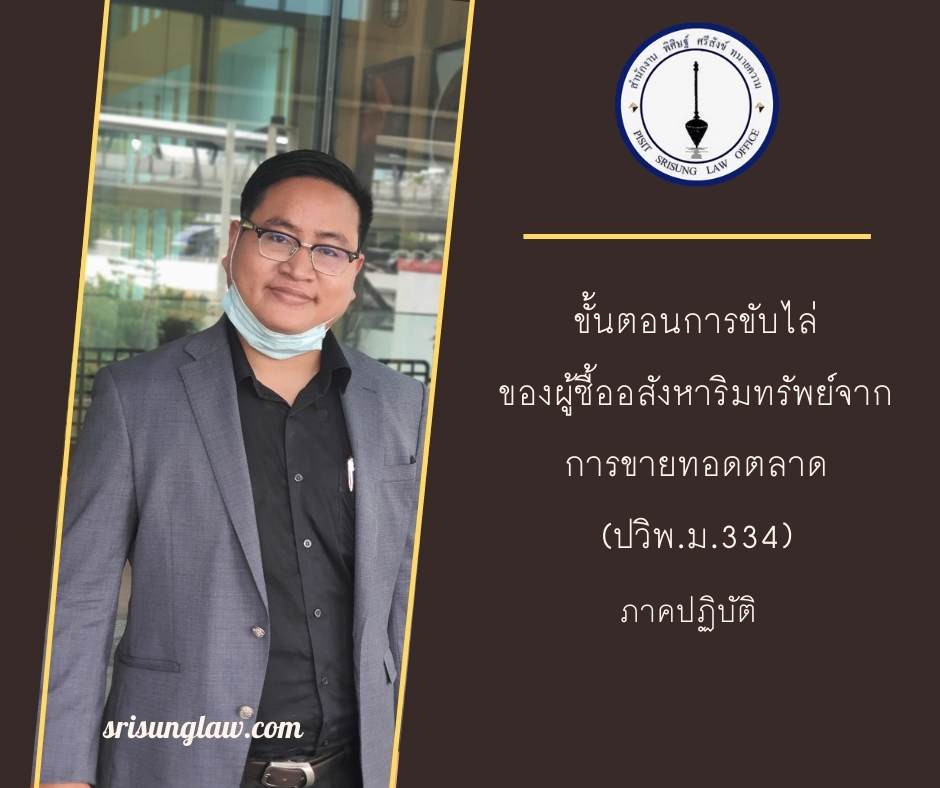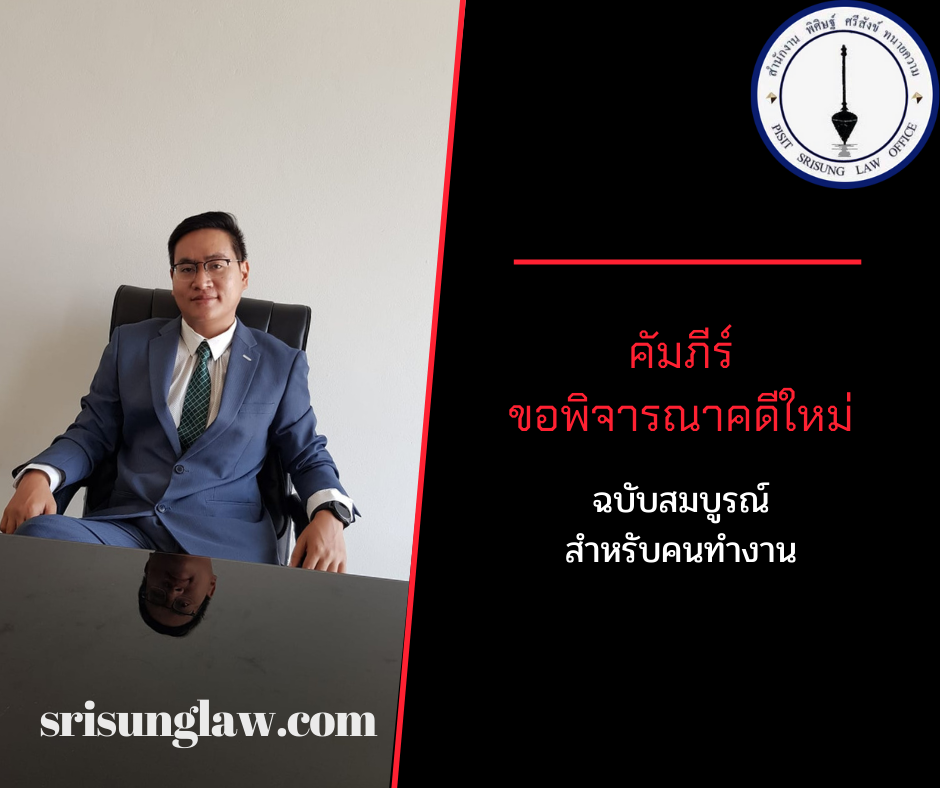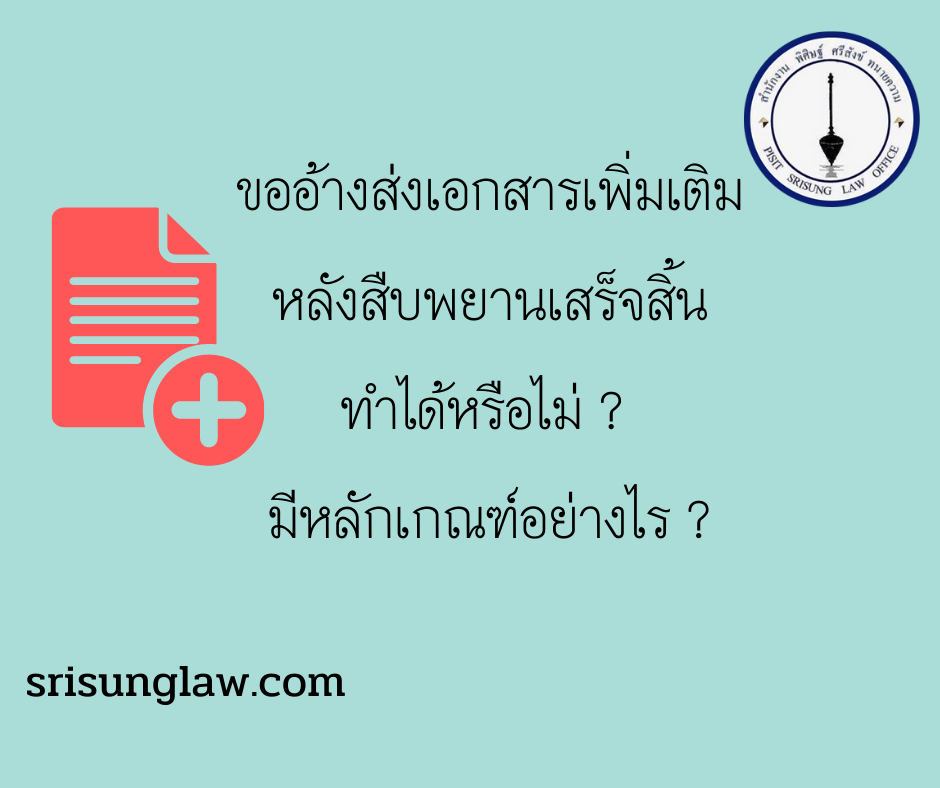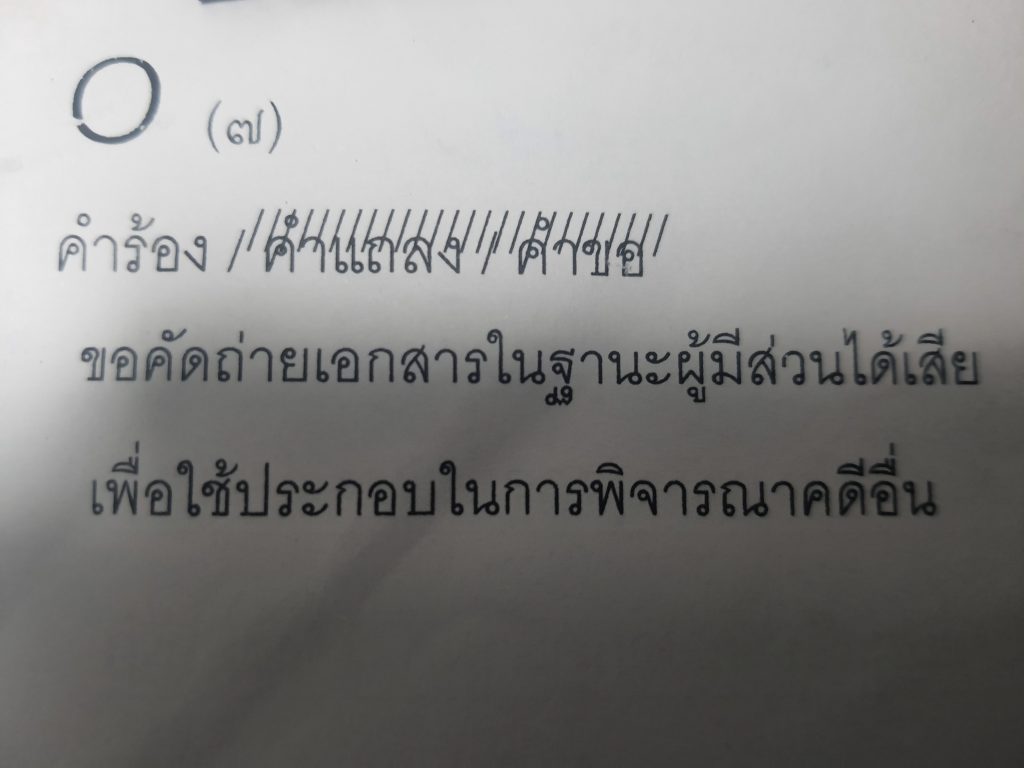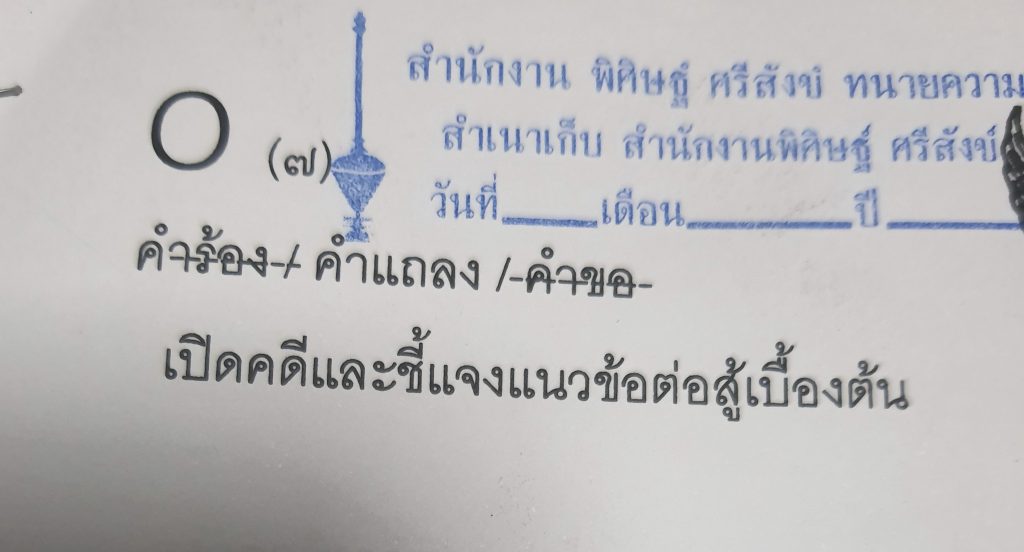In the last section I wrote about Questioning witnesses In the case that we are a lawyer who has brought up a witness, what is the procedure for questioning witnesses?
Today I will write about cross-examination. When we have to cross-examine witnesses from the opposing side. What techniques and methods will there be? Please follow and read.
What is cross-examination?
Normally, when there is a lawsuit filed in court, whether it is a civil case, a criminal case, or any type of case. Both litigants have a duty to present evidence and facts to the court in order for the court to believe their own defenses.
One of the most important pieces of evidence. in attesting or showing to the court Since ancient times, it has been “personal witness”
Which the plaintiff or the defendant They will refer witnesses who know the events to tell the facts to the court in order to benefit their case.
Witnesses usually testify or speak facts in a way that is beneficial to the litigant who claims the witness. For example, prosecution witnesses. They usually testify or tell the court only facts that are beneficial to the plaintiff. As for the defense witnesses, they will testify in areas that are beneficial to the defendant.
If each side’s witnesses are allowed to testify only to facts that are beneficial to their own side alone. It is indeed difficult to find the truth. Because each side’s witnesses will speak only about matters that are beneficial to their own side.
Therefore, in the judicial system of almost every country around the world Therefore, there is often an opportunity for the lawyer of the other party to Has sought the truth from witnesses cited by the opposing side by “cross-examination”
So, cross-examination is the questioning of witnesses cited by the opposing side. To prove that the witnesses cited by the opposing side Are you telling the truth? And are there any facts that aren’t completely told?
Cross-examination is a method of seeking the truth. and caught the witness lying The most effective Since humans have searched for a way Previously, we used to have many ways to prove the truth. By breaking through water, passing through fire, swearing, fighting, etc.
But time has proven that the method of cross-examination Using reason to criticize each other It is the best way to prove the truth that humans can do today.
Cross-examination What is the purpose? ?
There are two purposes of cross-examination:
1.To detect lies or lie to witnesses. To show the court that the witness is not reliable. Or what the witness told was not reliable.
2.To allow witnesses to testify to facts. that are beneficial to our case
Asking to achieve the above two objectives, there are several methods such as
- Asking about the witness’s bad or unreliable history
- Ask to see if Witnesses receive benefits from coming to testify.
- Ask to see if The witness is a close person or relative of the opposing party. Must testify in favor of the opposing side.
- Ask to see if the witness is biased. Or there is cause for anger on our side.
- I don’t see that. The witness’s expertise is flawed and unreliable.
- Ask to see if Witness testimony contradicts probabilistic reasoning.
- Ask to see if Witnesses give contradictory statements to other witnesses.
- Ask to see if Witnesses testify in conflict with documentary or material witnesses.
- Ask to see if Witnesses testify or testify each time differently and have a back-and-forth nature.
- Ask to see if Witnesses testify contrary to academic principles or reliable scientific reasoning.
- Ask to see if Witnesses are unlikely to remember or witness the events they claim clearly.
- Ask to see if Witnesses may misunderstand. Or testify and mix facts with your own thoughts.
- Ask to see if From the fact that the witness testified, there are other possibilities besides what the witness testified.
- Ask to see if There are other facts that are beneficial to our side but the witnesses have not yet testified.
- Ask to see if There are other witnesses who still have knowledge of the incident but have not yet come forward to testify.
And there are many ways to cross-examine. to destroy the credibility of witnesses or to allow witnesses to testify to facts that are beneficial to us It depends on the application and facts in each case. Ultimately, it depends on the ability of each lawyer to adapt to each situation.
Knowing the purpose of cross-examination is very important.
Before starting cross-examination. The lawyer who made the inquiry You must set the issue in your mind. and know the goal of asking The person who asked the witness What benefits do we want from that mouth nurse?
Cross-examination serves no purpose. Cross-examine to show that the client is working. Cross-examined without raising the issue. In addition to not being beneficial to the case It may also cause more damage and negative results to the case than good.
Because instead of benefiting from cross-examination It turned out that the question was asked to make the opposing witness testify even more strongly and convincingly. or the opposing party testifies in areas that are even more harmful to our side.
But cross-examination knows the purpose of the question. The questions were clearly stated. It will let us know what kind of questions we should ask. And what kind of method is used to ask witnesses? Then it will be beneficial to truly ask that witness.
Therefore, before cross-examining any witness We must ask ourselves first: Why are we cross-examining this witness?
Finding the purpose or issues used in cross-examination
As mentioned in the above point, Cross-examination must first establish the issue. What is our purpose in cross-examination?
So how do we find the purpose of cross-examination or the issues in cross-examination?
The answer is to do the following
1.We must examine the facts of the client and relevant witnesses in detail in order to know the overall facts in the matter.
2.We must examine documentary evidence and material evidence. related details To know the story of that case and the facts in the case as much as possible.
3.We must examine the opposing party’s documentary evidence, indictments, pleadings, petitions, testimony that witnesses have given. To know the points of contention or facts of the opposing side.
4.After getting all the facts, we must examine the law. Both from explanations of legal matters from legal professors on that subject. Supreme Court judgment Opinion of academics Related articles which is related to the picture of that case
When we understand the facts of the case thoroughly. including clearly understanding and knowing all legal matters related to that case We will know for ourselves which issues will be won and won in such cases.
For example, in a loan case. You are a defendant’s lawyer. After studying the facts from the complaint, testimony and personal witnesses and related documents Including checking the law. There is only one issue in the trial: Did the defendant receive the money that was borrowed from the plaintiff?
Like this, you will know immediately that in cross-examination of each prosecution witness. There must be an objective or point in cross-examination so that each witness will testify in such a way that it is unbelievable that the loan money was actually delivered.
A brief cross-examination process
Normally, the lawyer on the side who claims the witness I will ask my own witnesses first. Until the lawyer on the side who claimed the witness Ask your own witnesses until the questions are finished. will tell the court that “No questions – yes.”
After that opposing lawyer will have the right to stand up and cross-examine And when we finished cross-examining The opposing lawyer has the right to ask questions.
Cross-examination opposing witness Attorneys can ask questions in many different ways. It is not within the restrictions prohibiting the use of leading questions like questioning witnesses appointed by one’s own side. unlessQuestions that defame witnesses unless the question is important in deciding the dispute.
.Do not ask questions that expose witnesses to criminal penalties. unless the question is of material importance in deciding the dispute. (In criminal cases it is strictly prohibited without exception like in civil cases. According to the Criminal Procedure Code, Section 234)
Includes 12 cross-examination techniques. What lawyers must know
I have compiled basic cross-examination techniques. both from my own work experience And from many interesting textbooks, it can be summarized as follows.
1.Think of an opposing question. Start by thinking of the answer you want.
It means that in thinking about cross-questions or cross-questions, We must think first. How do we want the witness to answer our questions?
Then we will think of questions to ask the witness to answer as close to the answer we want.
It is very important to think about the answer you want to try to answer before asking a question. Because it will allow us to ask questions correctly. There is a purpose in asking.
For example: Loan contract breach case We want the witness to answer that. The witness was not present and did not witness the loan agreement. We have to ask the question:
- The witness works at the company. private sector called ….Yes or no?
- Is the incident day a normal working day?
- That day the witness went to work and was not on leave.
- The witness’s office to the contract location takes approximately 2 hours.
- The witness was at work on the day the contract was made, right?
- So, while making the contract and delivering the loan, the witness was not present to sign after work, right?
It can be seen that our goal from the beginning was how we wanted the witness to answer. It will help us know what kind of questions we should ask and how.
So remember that In thinking about cross-examination You must think about the answer you want to try to answer before asking questions. There is a simple principle: “The answer must come before the question. Don’t ask without knowing what answer you want. “
2. Ask from cause to effect. Use questions that are far from the topic so that the witness is not aware.
Cross-examination to destroy the weight of the witness. or to allow witnesses to testify on matters that are beneficial to us; Since the witness we cross-examined is the witness of the opposing side. He often thought only of testifying on matters that were beneficial to the opposing party.
If he knew the answer he would answer. It will be beneficial to our side. Most witnesses will try to find ways to avoid it. Testify in a different way In order not to benefit our side.
Therefore, in cross-examination Let witnesses agree to testify on matters that are beneficial to us. experienced lawyer You will know that we will not use direct questions first. We must use cross-examination from cause to effect. Use questions that are away from the topic first.
When we use distant questions Witnesses still don’t know what good or bad effects they will have on the case. Therefore, most witnesses tend to answer truthfully.
In addition, if we have any facts Those who try will have to testify and accept it without being able to deny it. Such as facts that witnesses have previously admitted in other matters. Facts that are clearly confirmed by government documents. Facts related to documentary evidence produced by the witness We should cross-examine the witness to testify first.
When a witness admits to matters that are far from the point or testify to facts in other matters that cannot be denied Many things add up to many answers. Such answers by the witness bind the witness to answer cross-examination. on important issues in the case as we wish Cannot answer otherwise.
Or if the witness answers cross-examination be something else which is contrary to the reason or answer that he gave previously It will cause the witness’s answer to have no reliable weight.
For example, We are defense lawyers. Want to object to the plaintiff’s witness to answer the question: On the day of the incident, I saw the defendant for just a moment. Therefore, it is likely that there will be no opportunity to recognize the defendant.
If we suddenly asked a direct question, On the day of the incident, did the witness see the defendant for just a moment? Was the defendant not comfortable with it? The witness may answer the question: Having seen it for a long enough time to remember it.
But if we ask using reasons to find the following results, for example
- Before the incident began, the witness was sitting on his cell phone. Yes or no?
- As the incident began, the witness was still playing the game. Yes or no?
- Did a witness see the defendant when someone shouted loudly?
- Did the witness turn around and see the defendant for a second and then quickly run away?
- In total, the witness only saw the defendant for a short time, about 1-2 seconds.
It can be seen that it is a cross-examination from cause to effect, with the witness admitting in the last point that the witness only saw the defendant for a moment. This is more useful than asking the witness directly from the beginning if they only saw the defendant for a brief moment or not.
Even if the witness finally testifies that he saw the defendant for a long time, it is not reliable because from all events it indicates that the witness probably only saw the defendant for a short time.
This technique is a classic technique. which can be applied in a variety of ways And it is a basic technique for cross-examination that lawyers must know.
3.Use leading questions
Because the witness we cross-examined will be the witness of the opposing side If we ask an open-ended question, allow the witness to explain. Witnesses often explain statements that are beneficial to their own side.
Therefore, cross-examination often uses leading questions. or questions to choose from The questions must be short and concise to the point. and do not allow the witness to explain the facts to the witness’s satisfaction, for example.
- Yes/No
- Correct-Incorrect
- True-False
To bind the witness from answering questions otherwise
For example
- Is the witness not an expert in signature verification?
- Is the witness more nearsighted than normal people?
- On the day of the incident, did the witness see the defendant for just a moment?
- Has the witness never seen the defendant before?
- Did the witness read the document before signing?
- Try to understand the document before signing?
- Did the witness create the said document?
- Have the witnesses seen the said video clip?
- Are witnesses also in the video clip?
At the time you asked. and encounter witnesses who answer incorrectly. For example, in a document forgery case, we cross-examine the witness who confirms that the document is a forged document.
We ask, “Is the witness not an expert in signature verification?”
The witness replied: “But the signature in this case looks fake. It definitely doesn’t look like it.”
Or answer: “I am familiar with this signature. I can confirm that it is fake.”
This is called an answer that does not answer the question. We must politely tell the witness: Witnesses, please answer the questions I asked. / Please.
If the witness still refuses to answer and evades further questions, we must ask the court to order the witness to answer directly to the question. As I have done, when we have to argue politely like this, the court always orders the witness to answer directly to the question.
If we allow the witness to continually answer incorrect questions, In addition to not benefiting from the cross-examination, it will also cause the cross-examination to waste a lot of time for no reason.
This is not a fixed rule that cross-examination must always use leading questions. Only for the most part Cross-examination using leading questions It will be more useful, more concise, and easier to get the answers you want.
But if there is a special reason that you want to ask the witness to explain other details. which may be beneficial to our side For example, wanting to cross-examine a witness to explain details about matters that the witness may not actually know. To detect lies, witnesses can be questioned. Or if you want the witness to explain facts that will only be beneficial to our side, you can use open-ended questions to allow the witness to explain.
So remember that. Ideally, you should use leading questions. will be more beneficial But it is not a fixed or absolute principle. If there is a special reason, you can also use open-ended questions.
However, Acharn Marut Bunnag once taught that in cross-examination The question “why” should not be used because it is a question of why. It is an open-ended question that allows the witness to explain his or her own reasons.
For example
- Attempted murder cases, we are the defense lawyers. Ask the prosecution’s witness until the fact It can be said that the witness is unlikely to actually recognize the defendant. And we went to ask further.
- The witness saw the defendant’s face for a moment. Both defendants wore caps and dark glasses. Why was the defendant?
- The witness will answer: I have known the defendant for a very long time. The defendant has a special characteristic: Big ear piercing So I can clearly tell.
It can be seen that the question “Why” is a question for the witness to explain the facts in his or her own interest alone. Sometimes it may or may not be true. Therefore, you should not cross-examine the witness using the words “Why?”
4.Use polite words. and use a gentle tone of voice that does not show hostility.
This is a very important matter. And many lawyers often make mistakes, misunderstand, and act incorrectly. causing harm to both oneself and an overview of the legal profession Including making it useless in litigation.
Ordinary people who are not lawyers. And many lawyers often misunderstand that A lawyer who can cross-examine witnesses in a loud voice. insulting the witness threatening to yell at a witness is a good lawyer Have the ability to cross-examine.
But the truth is Lawyers who question witnesses in the above manner is a lawyer who doesn’t understand and asking in such a way It usually does not bring any benefit to the case. Aside from satisfaction or the idea that you are good at deceiving yourself.
Because if you ask in a hostile manner With sarcasm, threats and shouting, witnesses often feel defensive. Not replying to messages is of benefit to you. and always trying to find a way to answer that is harmful to you which is a natural principle
But vice versa. If you ask the witness politely, gently, and in a friendly tone, Use normal gestures like a non-committal question. Chances are that the witness will testify in your favor. or responds to your questions There will be a very high chance. Because he thought that the answer he gave was not harmful to himself. or his side of the litigant
Same question. If asked in a harsh tone Aggressive demeanor You might get some sort of answer. But if you ask in a casual manner Polite tone You might get another answer. Naturally, asking politely will always get a better answer. Because the witness will have no feelings of opposition. And they often do not know that the answer they will answer may have an impact or negative effect on their own case.
So remember that Questioning witnesses in a loud voice, intimidating witnesses, or yelling at witnesses There was no benefit to the case at all. But it will make the court criticize you and have more sympathy for the witness. Asking witnesses politely Polite gestures will be most beneficial in work.
5.And does not show any signs of joy on the face.
In questioning the witness Lawyers must remember that Must maintain a calm demeanor. There was no sign of joy in his face or posture. throughout the period of cross-examination
This is because if you express your happiness outside of your face or making fun of opposing witnesses When the opposing witness gives evidence that is damaging to the case It is equivalent to telling the witness and opposing lawyer. Know when you made a mistake. The opposing witness will try to find a way to explain and solve the problem. Or the opposing lawyer will try to ask questions. To solve the issue seriously.
On the other hand, if you do not show joy Put on a neutral attitude. Perhaps the witness did not realize that he had made a mistake. Or the opposing lawyer may not know that the witness’ answer was wrong on this point and did not ask questions on this point.
Or if you express your sadness or shock in a clearly visible manner. While cross-examining witnesses and witnesses answering cross-examinations that are adverse to the nature of the case. It is equivalent to telling the witness and the opposing lawyer that Your weak point is this. Witnesses will try to testify repeatedly on this issue. Including the opposing side, they tried to ask witnesses to give additional testimony on this issue.
On the other hand, if you show an attitude of indifference. Show no signs of joy while the witness testified that was damaging to your case Witnesses may not testify further on this issue. Causing additional damage.
So, what is the correct way to conduct yourself while cross-examining witnesses? You will have to act like a person playing poker, poker, or nine-cards who must be clever. Treat asymptomatic symptoms No matter what the situation or the cards in your hand are.
And remember this when cross-examining witnesses. Our objective is to bring benefits to the case. and to achieve the final result, which is that we win the case We do not cross-examine witnesses to show or demonstrate their abilities to clients or others in any way.
6.Specific techniques for cross-examining witnesses to testify contradicting material witnesses and documentary witnesses
In cross-examination of a witness to allow the witness to testify in contradiction with the material witness. or document evidence Such as testimony that witnesses have given in other cases. or testimony that witnesses have given in other cases Documents that have been prepared or documents that were made by witnesses, audio clips, video clips, or other evidence that cannot be denied.
If we intend to cross-examine witnesses. In order for the witness to testify in contradiction with the said document or witness. We must strictly forbid witnesses from seeing the document. Or if it’s best, don’t let the witnesses know that We will use that documentary evidence in cross-examination.
Because if we take that document evidence to use in cross-examination first and the witness has seen the said document evidence In answering the next question and answering the question. Witnesses will testify in accordance with the documentary evidence. which will not be of any benefit.
Therefore, the correct method for cross-examining witnesses is to testify contradicting documents or material witnesses. You will have to ask about the contents of the witnesses to testify first. You must try to use leading questions. Have witnesses testify contradicting statements or contents of documentary evidence or physical evidence.
After that, you will gradually bring in documentary evidence or physical evidence. Come to the closing cross-examination to allow witnesses to testify. In this way, the court will clearly see that This witness is a witness who gives false testimony contrary to documentary evidence or physical evidence.
For example: We have 1 video clip that shows that during the incident the witness was not at the scene at all. As such, in cross-examination we should use the following method of cross-examining the witness.
- Witnesses are at the scene.
- The witness is sitting in the chair next to Mr. A.
- The witness sat there the whole time and didn’t move anywhere.
- In that area, you can clearly see the incident.
If the witness answers yes to every question. After that, we slowly opened the video clip and tried to watch it to testify that it was true. It is an event during the incident. But it did not appear that the witness was sitting next to Mr. A. and the area where the Prime Minister was sitting could not clearly see the incident.
If we take the video clip and show it to witnesses first. Witnesses may also testify that they are from a different angle that is not shown on camera. or easily evade testimony into something else.
So remember when cross-examining a witness to allow the witness to testify in conflict with the documentary or physical witness. We must first ask the witness for details in every aspect clearly and then show the document or physical evidence to the witness.
7.Specific techniques for cross-examining witnesses
In the case where we want to cross-examine two witnesses. is a witness who saw the same event and then came to testify at the same time There are many techniques that we must know as follows.
First of all We must cross-examine the first witness in detail. From before the incident, during the incident, after the incident, including all people, objects, things related to the incident so that the first witness can testify in detail.
After that, when the second witness or other witnesses who claim to have witnessed the incident at the same time come to testify. We will use the same method of asking for details using the same set of questions.
Look for witnesses who actually saw the event together. Being at the event and witnessing the event together, they will testify to the same essential points.
But vice versa. Find a pair of witnesses who were false witnesses or did not all witness the same event. But he came to claim that he had witnessed the incident. As such, witnesses will testify to conflicts on almost all important points.
By Ajahn Luang Satyuth Chamnan Mentioned in the fact book This is a valuable textbook for lawyers in cross-examination.
It is easy for anyone to claim to have witnessed an event. But it is difficult to give consistent and consistent reasons for all of them.
For example
The fact that two police officers will testify that had arrested the defendant, who was a criminal along with drugs, if these two police officers had arrested the defendant with drugs when coming to testify at court Both of them would be able to testify to the important details in harmony.
For example, the reason for the arrest. Events during the arrest Events after the arrest of all persons, objects, and documents related to the arrest.
But if these two police officers didn’t actually arrest the culprit. Just sign the arrest record. Or is it stuffing drugs into criminals and preparing them to testify?
Like this, if the lawyer knows how to use questions to ask for details of these 2 witnesses correctly. Witnesses on both sides are sure to give conflicting testimony on important matters.
In this case, conflicts between two witnesses will cause the court not to listen or the two witnesses are unreliable. There must be a conflict in essential matters. It’s not just a matter of opinion.
On this issue, I have already written an article. You can follow and read it in Article about “Principles for listening to witnesses when opposing witnesses contradict each other.”
8. Know how to stop when you should stop.
Cross-examination When a witness testifies and answers cross-examination to the point of benefiting the witness When you reach a certain point, you should stop and you should not continue asking. Because if you enter Continuing continuously, the benefits may become disadvantageous.
Because cross-examination of witnesses is beneficial. The witness must not be allowed to know the answer he or she gave. It is detrimental to the outcome of the case on your own side. Because witnesses on either side usually testify to benefit their own litigant.
It is normal for us, the lawyers on the opposite side, to cross-examine him. We will ask witnesses and get answers that are useful to our case. You must be careful not to let him know that the answer he will answer will be detrimental to his side or beneficial to our side.
Questions that the witness would be most comfortable answering. Give the answer as easily as possible. is a question that the witness does not know will be harmful to his or her side. or questions that will be useful to our side.
So when we cross-examine the witness until we get the benefit of the witness Because the witness answers without knowing whether the question is harmful to his side or beneficial to our side. We must constantly weigh up when to stop.
Because if we don’t stop and keep asking about that issue, Until finally the witness realized that all his further answers were against his own side. Or is it you and the opposite person? Witnesses often give explanations or give new evidence. To be harmful to our side or beneficial to your own side.
For exampleMurder case We are asking the prosecution’s main witness to show that he cannot recognize the defendant.
We ask that
- Has the witness never met the defendant before? The witness said yes.
- During the incident, was the witness intoxicated? The witness said yes.
- The event happened very quickly, didn’t it? The witness said yes.
- Is the light in the scene rather dim? The witness said yes.
- Is the defendant wearing dark glasses to hide his face? The witness said yes.
At this point, it will be considered that the witness’s testimony is very useful to us. If we still don’t have enough, ask next time the question.
“So, on the day of the incident, the witnesses did not recognize the defendant?”
In this way, the witness may testify and explain that “I remember. Because before the incident, even though he had not met the defendant before But on the day of the incident, they were drinking together. Set for several hours Since the light is still bright And at that time the defendant took off his glasses and could see his face clearly.”
In this way, it can be seen that the testimony answering all the cross-examination questions that you have tried to ask is useless. Can’t use anything. and it will be a punishment for your case as well.
So remember that In cross-examination of witnesses Care must be taken not to let the witness know the intent of our question and what the intent is for what we want to ask. And when you have received answers that are useful for the case You must know enough to stop when it’s time to stop.
9.Cross-examination. For the benefit of continuing to exercise the right to inherit.
In the case that we are the party who must examine witnesses later. There is a technique that we must know. We will have to cross-examine opposing witnesses. to the facts that we want to investigate and is within the knowledge and opinion of that witness So that witnesses can testify and explain before we investigate.
If we do not cross-examine the opposing witness about the said facts. But we came back to investigate it ourselves later without giving the opposing witness a chance to explain the issue. Our investigation will not be worth listening to. Because it means that we are telling the story on one side only. Without giving the opposing witness an opportunity to explain.
For exampleCase regarding employer theft
The plaintiff brought a witness for the prosecution who was a security guard to testify as a witness.
The defendant’s lawyer When questioning the prosecution’s witnesses, the security officers Did not object on the issue that As per regulations and guidelines, after 8:00 p.m. all doors will be locked. Other employees will not be able to enter and leave the company.
Later, the defendant’s lawyer He brought his own witnesses to testify to the said regulations. In this way, the weight of hearing evidence will be reduced. Because the defense lawyer did not cross-examine the prosecution’s witnesses to explain the facts.
But vice versa. If the defense lawyer had asked the prosecution’s witnesses the security guard’s mouth That at the time of the incident, it was after 8 p.m. and all the doors were locked so other employees could not enter and exit the company?
If the witness answers yes. It will be beneficial to the defendant’s case and the defendant’s evidence later.
But even if you try to answer no and explain otherwise. It is considered that the defense lawyer has given the prosecution witness an opportunity to explain the facts from his side. It is the duty of the court to weigh which side of the witness to believe.
But if the defendant’s lawyer does not cross-examine the said issue so that the witness can explain and testify by himself later. It will have no reliable weight.
In addition, In any event, we will bring witnesses who were at the same event as the prosecution’s witnesses to testify. We must also ask the prosecution’s witnesses to admit that On the day of the incident, the witness that we will bring to investigate was also present in the incident.
10.Use questions according to the nature of the witness
Cross-examination We should choose questions that are appropriate to the characteristics of each type of witness. In order to choose the correct questions and methods of asking.
To know which witness is what type of witness? Partly depends on preparing the case from the beginning and listening to the witness’s testimony when the witness is being questioned by the lawyer on the side who is referring. Another part
If we prepare the case well and listen carefully to the questions and answers of the opposing witness We will know immediately what type of witness such as a false witness, a witness who has not fully testified. Witnesses who testified misunderstood etc.
When we know what kind of witness we are. We must choose the right questions for that type of witness.
A witness who gives false testimony. We must use cross-examination to detect lies. To allow witnesses to testify in conflict with personal witnesses, material witnesses, and documentary witnesses.
A witness who testifies the truth. It’s just that he still hasn’t fully testified. We must use cross-examination to get the witness to tell additional facts that are useful to us.
A witness who does not intend to testify falsely. But he testified with a misunderstanding. We must use cross-examination. To show that there are other possibilities besides what the witness understood. Or there are other factors that cause the witness to be mistaken.
Witnesses who were police officers on the arrest team. These are professional witnesses who are skilled at answering cross-examination questions. cross-examination Or openly disagreeing with each other is not easy. It will take more effort than a normal witness to detect a lie. You must ask for details.
The villagers’ witnesses had no knowledge. There is fear of the court. We have to ask slowly. Use short, simple questions. Convince witnesses to testify according to the truth.
Expert witness You must cross-examine your knowledge and abilities. Academic reasons Referenced textbooks and other possibilities
11.Test the knowledge and opinions of witnesses by asking questions in no particular order. h2>
Normally when we question our own witnesses. We should ask questions according to the order of events so that the witness can easily compose the facts and tell the story.
In cross-examination of witnesses. Normally, we would investigate the factual issues in each matter according to the structure of the case. But we do not need to cross-examine them in any order.
We may take turns in order to detect lies or to see whether witnesses testify truthfully or not.
This is because the witness who testified falsely They are often rehearsed to testify in the order of events. without actually witnessing the event When he himself was cross-examined without chronological order. They often make mistakes or get confused. Because he himself did not witness the actual event.
For example, TWe may first ask about the events at the time of the incident. Then ask about the events before the incident. Or we may ask about the events after the incident first. Then go and ask about the events at the time of the incident.
In this case, if the witness who testified truthfully No matter how we switch the questions Witnesses will be able to answer questions correctly. Because he himself truly witnessed the event, but if the witness did not actually witness the said event Witnesses often give incorrect or contradictory answers.
However, while we use this technique We also must not be confused or forget the issue. Because if we use this technique, it appears that we forgot to come back and ask about the event at the beginning. It will cause us to miss the point from the beginning. As for this technique, it’s not a technique that I use often because I’m not very good at cross-examining in this way.
12. Calm and cool. Know how to solve immediate problems When the judge is not satisfied Or meet a witness of Tarantino
For the last technique. What I will leave you with is during cross-examination You must be calm and calm. There is no anger involved.
Because normally when we cross-examine witnesses Many times we can clearly see that a witness is lying. Or tell a lie to the point of being angry. Or the witness is trying to persuade you. Didn’t answer our question correctly. Pretending to ask us back Or answer in a way that is offensive to us.
Remember that we should not get emotional when responding to witnesses. Because of the fact that we are angry. Or becoming angry will cause work to have a high chance of making mistakes. and cause the court to look in a bad light.
If we meet a tempting witness or not answering the question correctly We must politely tell the witness, Please try to help answer the question directly. and looking for witnesses still refuses to answer I asked the court to instruct the witnesses.
The fact that witnesses often show such reckless behavior. It will make the court look at the witness in a bad light. And if we don’t argue with witnesses Solving problems politely using legal methods will make the court view us in a good light.
And if we are faced with an unfavorable judge For any reason, such as
Judge who refuses to record witnesses’ answers when we cross-examine them
A judge who interrupts or prohibits When we question witnesses on the grounds that they are not related to the issues in the case Even though it is a question related to the issue or a leading question that will be used to welcome the witness.
If we are faced with a situation where the judge is not happy with cross-examining witnesses like this. We should not be angry or argue with the court. But you should talk to the judge respectfully. and try to clarify the issue for you, such as:
Please allow me to politely explain to you how the questions and answers that you did not write down are important or related to the case. and ask for permission to help record the question or answer We confirm that the lawyer himself requested the recording.
This is the reason why the judge did not record the answer. or do not allow us to use questions There is often a reason because of that judge. I don’t know how important or relevant our questions or answers are to the case. This is because the judge did not come down to investigate the facts or examine the evidence from the beginning like a lawyer would. Therefore, you may still not understand all the facts of the case.
If you follow my advice from the beginning. By setting the issue of cross-examination with an objective from the beginning. And know well what the purpose of each cross-question is and how important it is in connection with the case. You will be able to explain the court clearly.
And from my experience I saw that for the most part, almost every judge Always listen to the lawyer’s explanation. If you explain with strong reasons There are references. and explain with politeness, honor and respect for the court.
One must be careful that such explanations should be given in private to the court so that the witnesses cannot hear. Because if we explain to the witness what the reason we are asking the witness is, The witness will know the intent of the question and will not testify. It makes us lose our benefits.
However, if you are faced with a judge who will not listen to explanations. Taking one’s own opinion as the sole priority You must keep your cool. Don’t be angry at all. But you can use the solution to solve the problem by submitting a request to challenge the order during consideration. or withdraw the proceeding that is in violation of the law.
I hope that articles and techniques for working from real experiences like this It will be beneficial to all friends and interested people. For the next part, I will write about asking questions. and asking permission to ask Please everyone wait and watch the next episode.

 51/29-51-30 Village No. 4, Ban Suan Subdistrict, Mueang District, Chonburi Province
51/29-51-30 Village No. 4, Ban Suan Subdistrict, Mueang District, Chonburi Province


